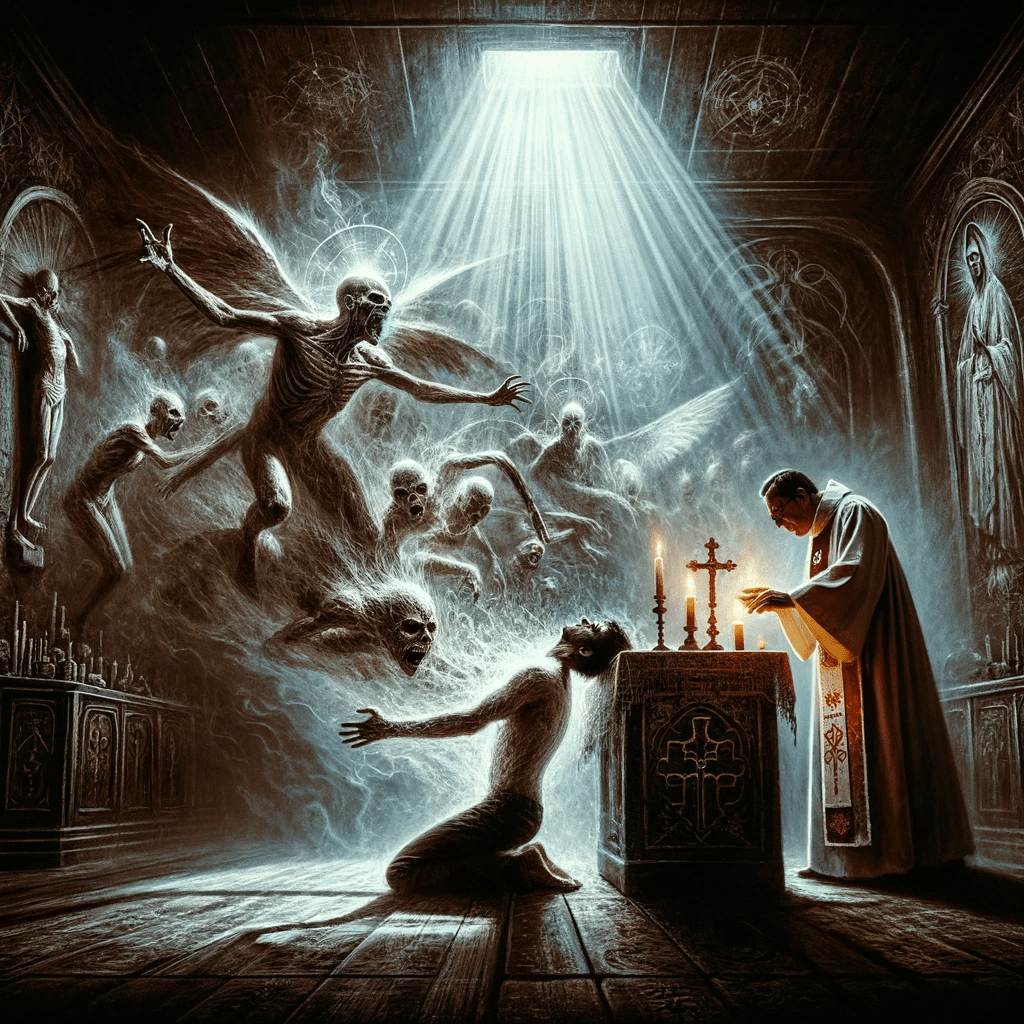Demonic Possession and Exorcism

Demonic possession and exorcism have been subjects of fascination, fear, and religious significance for centuries. Demonic possession is the belief that a person’s body or mind is taken over by a malevolent entity, typically referred to as a demon or evil spirit. Exorcism, on the other hand, is the religious or spiritual practice of expelling these entities from the possessed individual. These beliefs and practices are not limited to one particular culture or time period but have appeared in various forms across the world throughout history.
While the concept of demonic possession and exorcism is deeply rooted in religious and cultural traditions, the scientific community approaches these phenomena from a different standpoint. There is no empirical evidence to support the existence of demons or supernatural possession, as it cannot be observed or measured using the scientific method.
In a segment aired on December 12, 2019, “A Current Affair” featured an American priest trained as an exorcist by the Vatican, sharing his chilling experiences and insights into the rising demand for exorcisms. The priest, Father Vincent Lampert, is one of the 12 Vatican-trained exorcists residing in the U.S., having honed his skills through 40 exorcism sessions in Rome. The program revealed firsthand accounts of exorcism, including intense scenes of spiritual warfare and demonic manifestations such as levitation, aggressive behavior, and disturbing voices. The episode looked into Lampert’s reluctant journey to becoming an exorcist, his witnessing of profound evil forces, and the detailed process involved in the Catholic Church’s approach to exorcism, which emphasizes skepticism and stringent evaluation before proceeding with the rite. The show also touched upon the growing number of people seeking exorcism services, reflecting on the broader societal intrigue and fear surrounding the concept of demonic possession. Through Father Lampert’s experiences and the church’s protocol, viewers were offered a rare glimpse into the shadowy realm of exorcism, its psychological and spiritual implications, and the church’s role in confronting what many believe to be the personification of evil.
Scientific explanations for the experiences associated with possession-like symptoms include psychological and neurological disorders. Conditions such as schizophrenia, dissociative identity disorder (formerly known as multiple personality disorder), and epilepsy can manifest symptoms that might be mistaken for possession, including altered states of consciousness, hallucinations, and personality changes.
Anneliese Michel’s story, known as the real-life Emily Rose, revolves around her undergoing 67 exorcism rites before dying at 23 due to malnutrition and dehydration. Initially diagnosed with temporal lobe epilepsy, her condition worsened, leading her to believe she was demonically possessed. Despite severe self-harm and extreme behaviors, she underwent numerous exorcisms over ten months, claiming to be possessed by multiple demons. The aftermath led to a national sensation in Germany, with her parents and the priests charged with negligent homicide. Michel’s tragic story has become an icon for some, reflecting a complex intersection of faith, mental health, and cultural beliefs.
Several books have explored the subject of demonic possession and exorcism from different angles. For example, “The Rite: The Making of a Modern Exorcist” by Matt Baglio looks into the experiences of a Catholic priest training to become an exorcist in the modern era. The book provides firsthand accounts and insights into the practice. The book “Possession, Exorcism, and Hauntings” by William Peter Blatty, explores the history of exorcism across cultures. The belief in demonic possession and the practice of exorcism are not limited to Christianity. Different religions, including Islam and Hinduism, have their own versions of exorcism rituals. The book “Possession and Exorcism in the New Testament and Early Christianity” by William L. Petersen provides an in-depth exploration of the religious diversity surrounding this phenomenon.
Theologian and historian Jeffrey Burton Russell has written extensively on the history of demonic possession, acknowledging its cultural significance. Believers in demonic possession claim that malevolent spirits or demons can take control of an individual’s body or mind, leading to erratic behavior and distressing symptoms. Exorcism is viewed as the means to cast out these entities and restore the possessed person to normalcy. This belief is deeply rooted in religious and cultural traditions.

